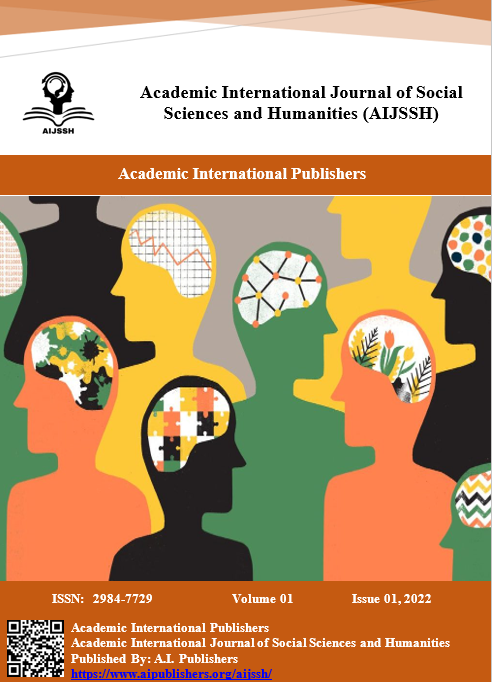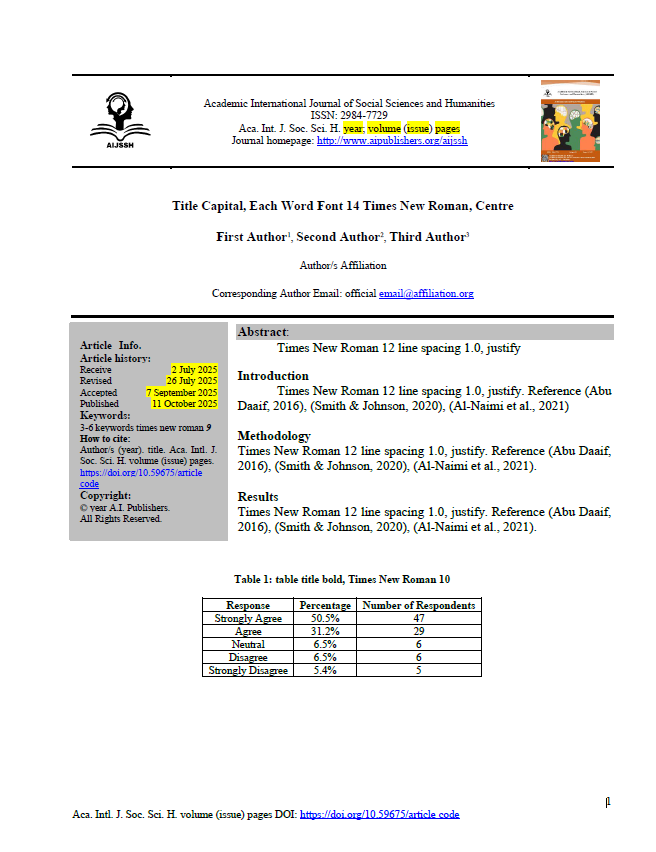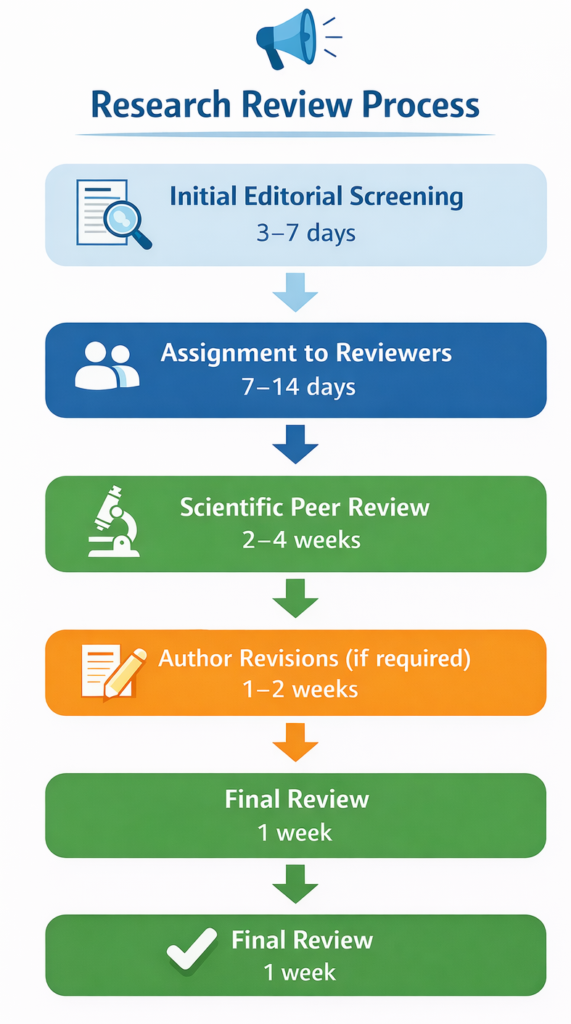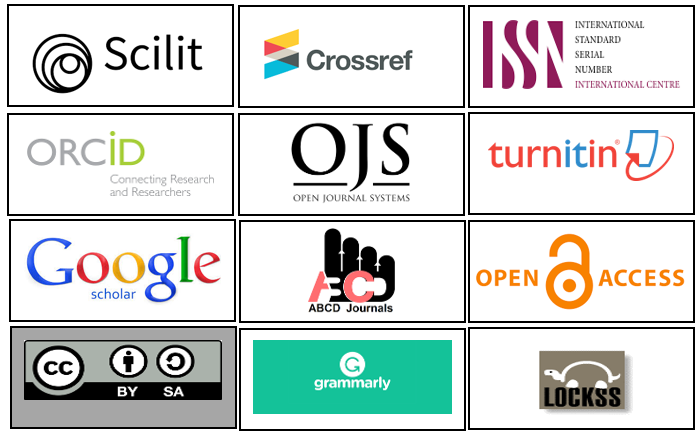The Influence of Religious Values on the Social Efficiency of Families of People with Special Needs 'Syrian Refugees in the State of Gaziantep as a Model'
DOI:
https://doi.org/10.59675/S312Keywords:
Religious Values, Social Competence, Families with Special Needs, Syrian Refugees, Gaziantep, TurkeyAbstract
This study begins with the assumption that values play a crucial role in human behavior, particularly in motivating various forms of behavior and providing the necessary motivation and perseverance to support them. This study also sheds light on religious values and their positive impact on social life, especially in the Islamic religion, to which the majority of Syrian refugees residing in Gaziantep belong, specifically families of people with special needs, the subject of the study, who were forced to leave their country and take refuge in Turkey as a result of the war that broke out in Syria in 2011 and is continuing today. The study focused its objectives on the effect of fundamental religious values (contentment, compassion, patience, and optimism) on social competence and the main skills associated with it, especially control, flexibility, participation of others in social activities, and the ability to solve problems and face the challenges that families with special needs face in interacting with the surrounding community. To achieve the objectives of the study, a questionnaire specific to its topics was prepared and administered to a research sample that included 300 family members of people with special needs, diverse in terms of gender, age, educational level, and kinship with those with special needs (parents, brothers, and sisters). The study also included a review of the numbers, ratios, statistics, and graphs derived from the questionnaire results, which were analyzed using scientific and statistical methods, followed by an explanation of the nature of the effect of religious values on competence. The study concluded by confirming a positive relationship with statistical significance between adherence to religious values and the demand for them, as well as the development of social competence skills. Social and revealing its causes and manifestations. The study ultimately concluded with a set of recommendations and proposals aimed at providing better quality services to refugee families with special needs by leveraging the role of religious values and focusing on their behavioral outcomes, which contribute to achieving stability for refugees and enhancing their quality of life and social security.
References
Aimard, P., & Morgon, A. "L’enfant sourd." Paris: Ed PUF, 1985.
Bandura, A (1977). Self-efficacy: Toward a Unifying Theory of Behavioral Change. Psychological Review. 84 (2): 191–215 DOI: https://doi.org/10.1037//0033-295X.84.2.191
Bandura, A. (1997). Self-Efficacy: The Exercise of Control. W. H. Freeman.
Bryan T. B. (1994): The Social Competence of students with Learning Disabilities over time, A response to Yaughn and Hogan Journal of learning Disabilities. DOI: https://doi.org/10.1177/002221949402700506
Bullen, & Bullen, P. B. How to choose a sample size (for the statistically challenged). (Tools4dev, 2022).
Cavell, Timothy. “Social Adjustment, Social Performance, and Social Skills: A Tri-Component Model of Social Competence.” (Journal of Clinical Child & Adolescent Psychology 19, 1990), no. 2. DOI: https://doi.org/10.1207/s15374424jccp1902_2
Competence Intervention for Parents (SCI-P): Comparing Outcomes for a Parent Education Program Targeting Adolescents with ASD.” (2012).
Felner, R.D.; Lease, A.M. & Phillips, R.S.C. (1990).T.P. Gullota GR. Adams & R. Montemayor, ed. The development of social competence in adolescence. Beverly Hills, CA: Sage pp.24-64
Felner, R.D.; Lease, A.M. & Phillips, R.S.C. (1990).T.P. Gullota GR. Adams & R. Montemayor, ed. The development of social competence in adolescence. Beverly Hills, CA: Sage.
ICED. Survey of disability and mental health among Syrian refugees in Sultanbeyli, Istanbul. (ICED, London School of Hygiene & Tropical Medicine, 2019).
International Centre for Evidence in Disability (ICED). "Survey of disability and mental health among Syrian refugees in Sultanbeyli, Istanbul." Research Report, ICED, London School of Hygiene & Tropical Medicine, 2019.
Mannoni, M. "L'enfant arriéré et sa mère." Paris: Ed Seuil, 1964.
Marc, E., & Picard, D. "L'interaction sociale." Paris: Ed PUF, 1989.
Riggio, R. (1990). Social Skills and Self Esteem. Personality and individual Differences Vol. DOI: https://doi.org/10.1016/0191-8869(90)90188-W
Satir, V. "Thérapie du couple et de la famille." Édition EPI, 1982.
Scelles, R. "Fratrie et handicap." Paris: Ed l'Harmattan, 1997.
Schultz, Tia R., Janine P. Stichter, Melissa J. Herzog, Stephanie D. McGhee, and Kristin Lierheimer. “Social Competence Intervention for Parents (SCI-P): Comparing Outcomes for a Parent Education Program Targeting Adolescents with ASD.” (2012). DOI: https://doi.org/10.1155/2012/681465
UNFPA Türkiye VE SGDD-Asam Avrupa Birliği Ile Birlikte Engelli Mültecilere Destek Oluyor. (Turkey: UNFPA Türkiye, 2022).
Downloads
Published
Issue
Section
License
Copyright (c) 2025 Academic International Journal of Social Sciences and Humanities

This work is licensed under a Creative Commons Attribution 4.0 International License.






